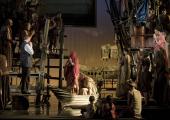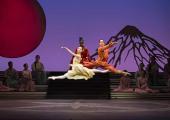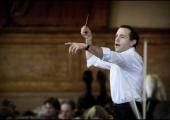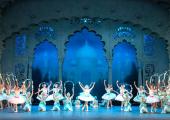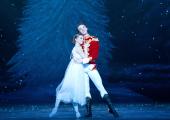The Golden Cockerel, Diaghilev Festival, London Coliseum
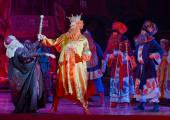
Musical values outstanding, decor and dance not bad in tribute to Diaghilev opera-ballet
Rimsky-Korsakov’s bizarre final fantasy, puffing up Pushkin's short verse-tale to unorthodox proportions, has done better in Britain than any of his other operatic fairy-tales. That probably has something to do with its appearance in Paris, six years after the composer’s death in 1908, courtesy of a brave new experiment marshalled by that chameleonic impresario Sergei Diaghilev.

